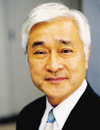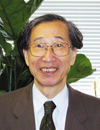From the 1990s, brain science has advanced dramatically as a broad human science, from the micro level to the systems level and beyond, encompassing social activity. In the next 10 to 20 years, brain science is expected to gather widespread interest, evolving into a new science which integrates basic and applied research, and holds the key to solving many of society's problems. Brain science, a science which studies human beings, has a particularly significant mission in Japan, where, as people reach a high level of material wealth, their psychological troubles have increased. Brain science contributes to the advancement of mankind by new insights into a wide range of areas. It sheds light on the nature and physiology of human beings, the causes of neurological, psychiatric, and developmental disorders, and leads us to methods of treatment and prevention. It clarifies the principles of brain development and learning, and yields guiding principles for raising and educating children. It discovers the brain's information processing system, showing us possibilities for technical applications.
Since it opened in 1997, RIKEN Brain Science Institute has gathered together superior research groups to explore the most important and advanced areas of brain science under an international and highly flexible management system that encourages interdisciplinary research. Since then it has grown into one of the leading brain research institutes in the world. Over the next five years, the Institute will be strengthening its interdisciplinary research system to undertake new challenges in the four research cores of mind and intelligence, neural circuit function, disease mechanism, and advanced technology management.







